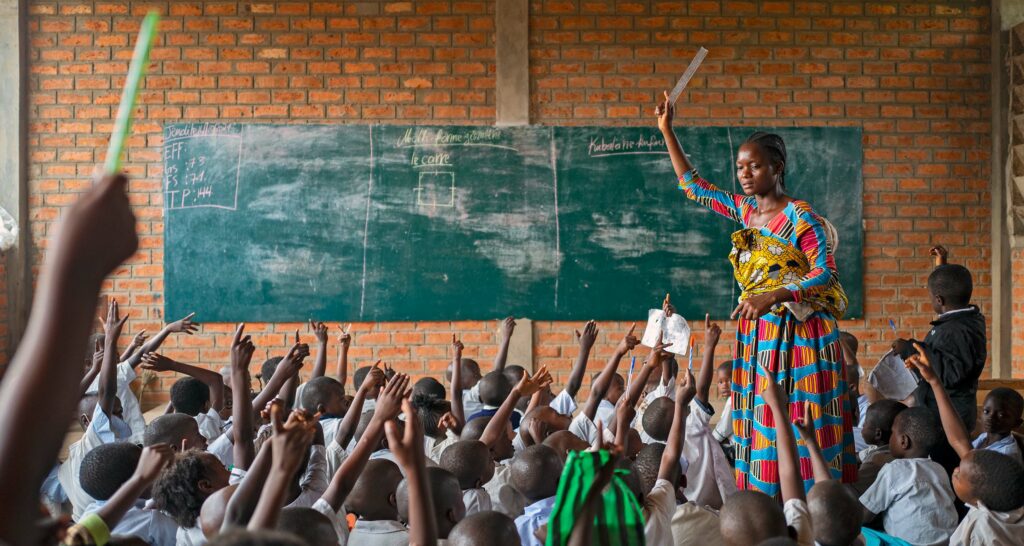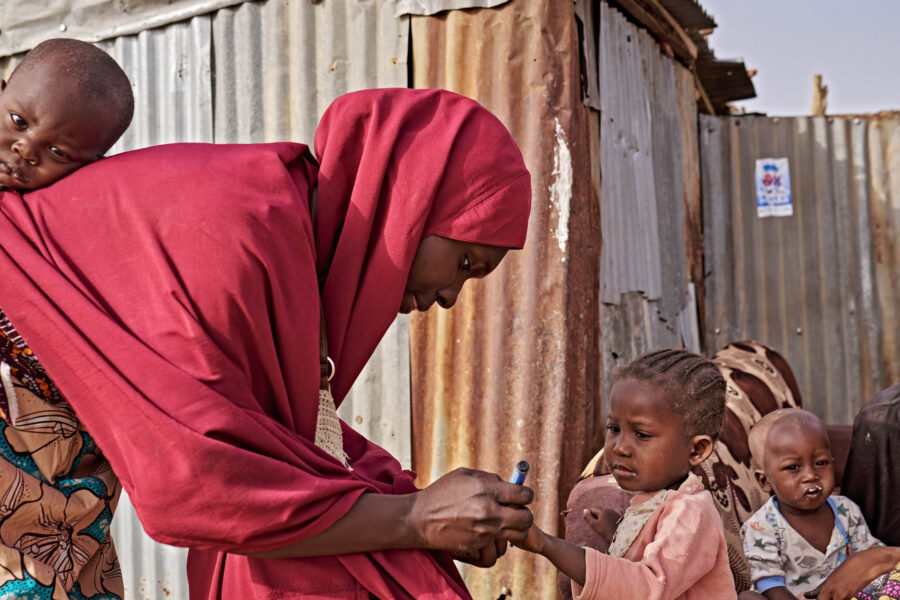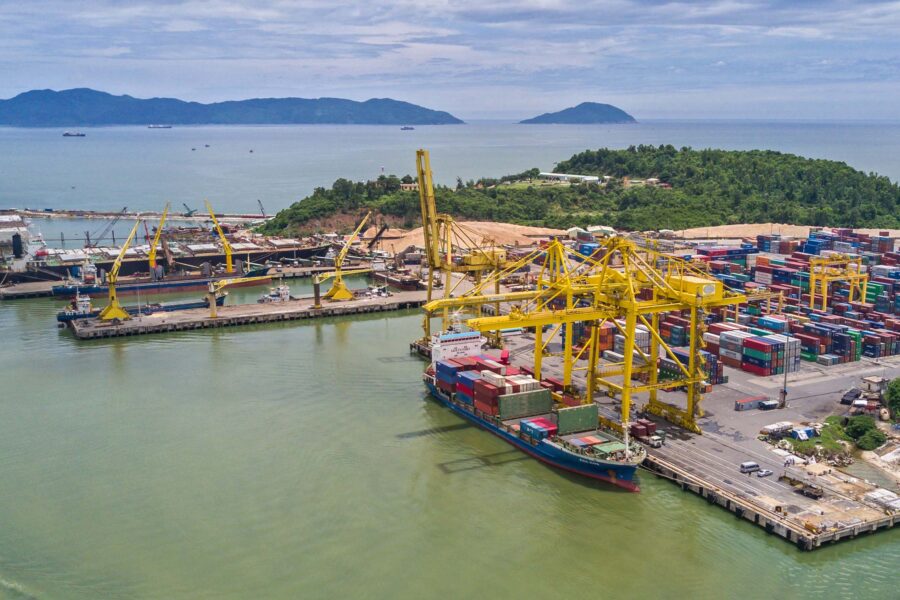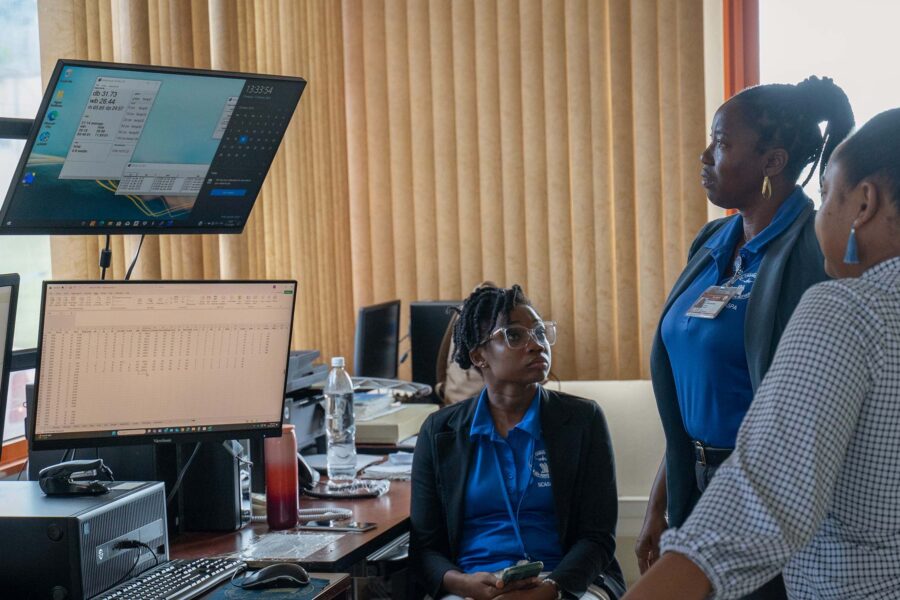An international financial system at the service of sustainable development
For the developed world, increasingly there appears to be only one existential crisis in town: climate change. Achieving the broader agenda of the Sustainable Development Goals (SDGs) demands deep reform of the international financial system and urgent recalibration of political will
Global governance — Global

Despite a promising start during the first few years of the 2030 Agenda, with significant gains in the fight against hunger, poverty and inequality, at its midpoint it has become clear that we are far from achieving it. A special edition of the SDG progress report shows that just 12% of the 169 targets are on track, while progress on 50% is insufficient.
These figures translate into serious reversals, especially for developing countries. The number of people living in extreme poverty is higher than four years ago. Income inequality is reaching new peaks, and hunger has returned to 2005 levels. At the current pace, it would take humanity another three centuries to achieve gender equality.
At the same time, despite calls to implement the Paris Agreement, greenhouse gas emissions continue rising and the world remains off track to achieve the objective of keeping global warming below 1.5ºC compared to pre-industrial levels. As economist Sakiko Fukuda-Parr has noted, not only are many people being left behind, they are being actively pushed even further behind.
UN leadership has recognized that this backsliding calls for immediate action. Secretary-General António Guterres recently stated that, “Unless we act now, the 2030 Agenda will become an epitaph of a world that might have been.”
Acting now requires a clear diagnosis. What is driving the reversals in the 2030 Agenda? Multiple and intersecting crises, ranging from the COVID-19 pandemic to protracted armed conflicts, weakened global governance, and rising geopolitical tensions, are posing new obstacles to fulfilling the SDGs or exacerbating old ones.
Competing crises
But there is also a major political problem: namely, the systematic de-emphasis, by developed countries, of the 2030 Agenda. This results from a combination of three factors. The first is a misguided competition among agendas, based on the false premise that SDGs constitute a task that is both separate from, and lesser than, other challenges.
In global agenda-setting, sustainable development has long competed with peace and security for attention and resources, but now it also increasingly competes with climate. This separation between the SDGs and climate harkens back to an outdated reading of the relationship between development and the environment, a false dichotomy that was presumably overcome in the 1987 Brundtland Report and in Agenda 21. The third factor is an abandonment of the development challenge as an economic transformation that requires significant resource mobilization, active policy support, and sustained international cooperation.
The 2030 Agenda very much incorporates climate, not only through a specific objective (SDG 13) but also through its relevance to the other goals. Yet the agenda reaches beyond climate for good reason: not everything needed to accomplish it falls under the rubric of climate action or, correspondingly, climate finance. Other aspects of sustainable development need attention and financing to ensure that development gaps are closed and that basic needs, wellbeing, dignity, and rights are promoted and respected. The principle of Common But Differentiated Responsibility helps to ensure that such needs are addressed.
The loss of prominence of Agenda 2030 is also a direct consequence of the inadequate representation of developing countries in the main decision-making fora of global governance. This problem is not new, it dates to the post-World War II era, but it has never been more debilitating given the heightened interdependence of the global economy and the growing intensity of the polycrisis amidst deepening geopolitical rivalries. Over time, global governance has become not less, but more permeable to global power competition. When Northern actors posit climate change to be the main, if not the only, existential problem facing humanity, they often call attention to the environmental dimension of the sustainable development agenda not in relationship to, but rather at the expense of, addressing the deepening social and economic challenges facing governments and households in the South.
Yet, as agreed upon at the Rio Earth Summit in 1992, the three dimensions of sustainable development are indivisible, interconnected, and mutually reinforcing. Kick away one leg of the tripod, and it will come crashing down. Only development that manages to balance these aspects can be sustained in the long term. And only by making progress across all the SDGs can developing countries acquire the adaptation and mitigation capacities needed to address climate change, or to implement the just transition.
A failure of finance
Developed countries’ narrow emphasis on climate – and, within it, mitigation more specifically – to the detriment of everything else is reflected most sharply in the financing agendas.
The lack of a clear definition of climate finance, even as the concept expands to occupy all available political and epistemic space in the financing arena, is creating numerous problems, including a “crowding out” of development finance. This is seen, for instance, in the double counting of resources as both climate and development financing. In 2009, at COP15 in Copenhagen, countries agreed that climate financing should in fact be new and additional to development finance, not substituting it. In other words, the commitment by developed countries to make available 100 billion USD annually to support developing countries in addressing climate change should be supplementary to the commitment of developed countries, established in a resolution of the UN General Assembly in 1970, to allocate 0.7% of their gross national income to development aid initiatives. The unpaid bill from failing to meet this target already stands in the trillions of dollars.
Even as these commitments are broken, developed countries increasingly push developing ones, as well as the institutions created to help close the gap – especially multilateral banks – to channel efforts and resources to climate action, especially mitigation. When the SDGs are mentioned, emphasis is placed only on reducing greenhouse gases, which reflects a narrow and unjust understanding of sustainability. While mitigation is essential, adaptation, loss and damage, and just transition are equally important. More broadly, so is the rest of the 2030 Agenda, including inequality, technological development, infrastructure, and gender policy.
The issue is not lack of resources. Military spending around the world is booming; it reached a record of USD $2,240 billion in 2022. Many global corporations are wealthier than many countries, and a few dozen individuals amass vast fortunes in the hundreds of billions of USD. The International Monetary Fund (IMF) is sitting atop a mountain of money through the recent issuance of Special Drawing Rights (SDR), but the resources are not reaching those who need them. “Unlocking” available resources is sometimes attributed to technical challenges, but it is primarily a matter of political decisions and moral conviction.
The need for reform
These problems are part of a much broader challenge, which demands systemic reform. The international financial system has become both outdated and fragmented. It is failing across the board:
- to help developing countries to improve the lives of their citizens;
- to support the fight against “new challenges” such as climate change and the digital revolution; and
- to advance reforms to prevent future global financial crises.
Established institutions have all but given up on supporting structural transformation in developing countries that could lead to sustainable development and increase capacity to address mounting challenges. Instead of closing gaps, the system is actively widening them.
One symptom – although by no means the only one – is the growing debt crisis. The proportion of countries in debt distress, or at high risk for it, has doubled to 60% from 2015 levels. As a result, most low-income countries (but also, increasingly, some middle-income ones), are unable to invest in SDGs altogether. Moreover, the bailout conditionalities imposed by the IMF further undermine their capacity to work towards the SDGs. Restructuring some of this debt may help solve immediate problems, but the bigger question is how can we prevent this from occurring in the first place?
A related issue is the staggering lack of transparency in the international financial system. This opaqueness is not by chance, but rather by design. Who benefits from the absence of clear, comprehensive maps of the system, showing us clearly what pots of resources exist, where the money comes from, where it goes and under what conditions it can be accessed? In the absence of such clarity, two things happen. First, those who rig the system continue to reap its benefits. Second, solutions remain piecemeal, with major meetings yielding only loose laundry lists of proposals that tinker with parts. Other proposed responses aim at low-hanging fruit, leaving out the vast majority of the world’s poor and vulnerable, and without addressing the root causes.
Ultimately, serious talk of reform must also address the relationship between state and market. Solutions put forth have also come to rely excessively on the logic of the market whether through talk of “derisking” or blended finance. Both Official Development Assistance commitments and the role of the state in guiding long-term, sustainable development fade into the background. Even as developed countries openly announce a new wave of industrial policy domestically, they double down on protectionism and conditionalities that restrict policy space in the developing world.
The system is lopsided and full of holes, and the center cannot hold. An international financial system at the service of sustainable development requires tackling core issues: lack of transparency, inadequate representation, and geopolitical interference. Only a balanced and just view of sustainable development and a clear-eyed approach to reform will help us solve the mounting challenges, and to prevent future crises.





